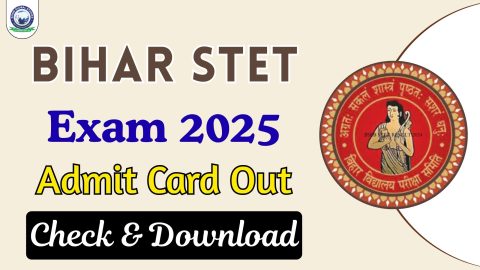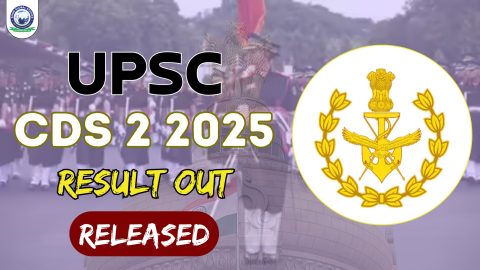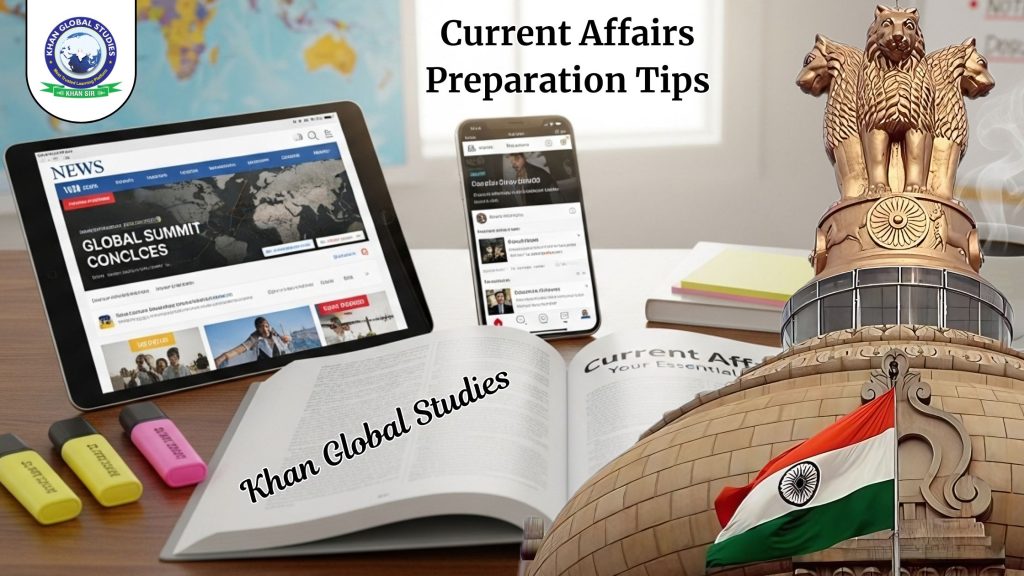Staying updated with current affairs can feel overwhelming. With news breaking every minute and information flooding from countless sources, many students and professionals struggle to keep pace. Whether you’re preparing for competitive exams, job interviews, or simply want to stay informed, having a solid current affairs preparation strategy makes all the difference.
This guide will walk you through proven methods to master current affairs efficiently. You’ll discover practical tips to organise your study routine, identify reliable sources, and retain information effectively. By the end, you’ll have a clear roadmap to stay ahead of the curve without feeling buried under endless news updates.
Why Current Affairs Matter More Than Ever
Current affairs knowledge serves as the backbone of many competitive examinations. From civil services to banking exams, questions about recent developments can make or break your scores. But the benefits extend far beyond test performance.
Understanding current events helps you engage meaningfully in conversations, make informed decisions, and grasp the context behind policy changes. In professional settings, staying updated with industry trends and global developments often sets candidates apart during interviews and workplace discussions.
The challenge lies not in finding information but in processing it effectively. With social media, newspapers, magazines, and online platforms all competing for your attention, the key is developing a systematic approach that works for your specific goals.
Building Your Current Affairs Foundation
Choose Your Core Sources Wisely
Start by selecting 2-3 reliable primary sources rather than trying to cover everything. Quality trumps quantity when it comes to current affairs preparation. Focus on sources that provide comprehensive coverage with analysis, not just breaking news.
Government websites, established newspapers, and specialised educational platforms often provide the most reliable information. These sources typically fact-check their content and provide context that helps you understand the significance of events.
Once you’ve established your primary sources, you can add supplementary materials like weekly magazines or monthly compilations that offer deeper analysis of major events.
Create a Daily Reading Schedule
Consistency beats intensity in current affairs preparation. Dedicating 30-45 minutes daily to reading current affairs proves more effective than cramming for hours once a week.
Set a specific time each day for your current affairs study. Many successful candidates prefer morning sessions when their minds are fresh and less likely to be distracted by daily responsibilities.
Break your daily session into segments: spend 15-20 minutes on daily news updates, 10-15 minutes reviewing weekly summaries, and 10 minutes testing your retention through quick quizzes or mental revision.
Smart Note-Taking Strategies
The Three-Column Method
Divide your notes into three columns: Date/Source, Event/Topic, and Significance/Analysis. This format helps you capture not just what happened, but why it matters.
The first column helps you track when and where you learned about each event. The middle column contains the core facts about the event. The third column is crucial – it’s where you note the broader implications and connections to other topics.
This method makes revision easier and helps you understand patterns and relationships between different events, which is essential for answering analytical questions in exams.
Focus on the 5 W’s and H
For each significant event, ensure your notes cover Who, What, When, Where, Why, and How. This framework ensures you capture complete information and can answer various types of questions about the same event.
Don’t just copy information verbatim. Summarise in your own words to improve understanding and retention. This practice also helps you explain complex topics clearly during exams or discussions.
Subject-Wise Current Affairs Approach
Political Developments
Track major political events, policy changes, and government initiatives. Pay special attention to constitutional amendments, new laws, and international relations developments.
Focus on understanding the reasoning behind policy decisions and their potential impact on different sections of society. This analytical approach helps you tackle questions that ask for opinions or predictions rather than just facts.
Economic Affairs
Monitor key economic indicators, budget announcements, and major business developments. Understanding economic trends helps you connect seemingly unrelated events and provides context for policy decisions.
Keep track of important statistics like GDP growth rates, inflation figures, and major trade agreements. These numbers frequently appear in competitive exams and interviews.
Social Issues and Environment
Stay updated on major social initiatives, environmental policies, and demographic changes. These topics often appear in essay-style questions where you need to provide balanced perspectives.
Focus on government schemes, their implementation challenges, and success stories. Understanding both the positive impacts and limitations of various programmes shows analytical depth.
Science and Technology
Track breakthrough discoveries, space missions, and technological innovations. Pay attention to how these developments might impact society and policy-making.
Don’t get lost in technical details unless you’re preparing for science-specific exams. Focus on the practical implications and potential applications of new technologies.
Effective Revision Techniques
Weekly and Monthly Reviews
Set aside time each week to review the major events from the past seven days. Create summary sheets that highlight the most important developments across different categories.
Monthly reviews help you identify broader trends and patterns. Look for connections between events and try to predict potential future developments based on current trends.
Active Recall Practice
Instead of just re-reading your notes, test yourself regularly. Cover your notes and try to recall key events, dates, and their significance. This active practice strengthens memory retention significantly.
Create flashcards for important facts, figures, and dates. Digital flashcard apps can help you review efficiently during commute time or short breaks.
Discussion and Debate
Engage in discussions about current events with friends, family, or study groups. Explaining events to others and hearing different perspectives deepens your understanding.
Join online forums or social media groups focused on current affairs discussions. However, be careful to verify information from social media sources before including it in your preparation.
Common Preparation Mistakes to Avoid
Information Overload
Many students make the mistake of trying to read everything available about current affairs. This approach leads to confusion and poor retention. Stick to your selected sources and focus on understanding rather than coverage.
Avoid jumping between multiple sources for the same news story unless you need clarification on conflicting reports. Too many perspectives can sometimes create confusion rather than clarity.
Neglecting Analysis
Simply memorising facts without understanding their significance is a common pitfall. Always ask yourself why an event is important and how it might affect different stakeholders.
Practice connecting current events to historical context and future implications. This analytical thinking is what separates good current affairs preparation from mere fact collection.
Irregular Study Patterns
Sporadic reading sessions lead to gaps in knowledge and poor retention. Even if you can only spare 15 minutes some days, maintain the habit of daily reading.
Don’t try to compensate for missed days by reading extensively. This approach often results in information overload and poor comprehension.
Leveraging Digital Tools and Resources
Mobile Apps and Websites
Use current affairs apps that provide daily updates and quizzes. Many educational platforms offer structured current affairs content specifically designed for competitive exam preparation.
Set up news alerts for specific topics relevant to your preparation. This ensures you don’t miss important developments in key areas.
Online Quizzes and Tests
Regular testing helps identify knowledge gaps and improves retention. Many websites offer daily current affairs quizzes that can supplement your preparation.
Track your quiz performance over time to identify patterns in your strengths and weaknesses. Focus additional study time on areas where you consistently score poorly.
Exam-Specific Current Affairs Strategies
Understanding Question Patterns
Different exams emphasise different aspects of current affairs. Civil service exams might focus more on policy analysis, while banking exams might emphasise economic developments.
Study previous years’ question papers to understand how current affairs questions are framed in your target exam. This helps you prepare more strategically.
Time Management During Exams
Current affairs questions often appear early in multiple-choice exams. Answering these quickly and accurately can boost your confidence for the remaining sections.
Practice answering current affairs questions within time constraints. This helps you identify which types of questions you can answer quickly and which require more thought.
Staying Motivated and Consistent
Current affairs preparation is a marathon, not a sprint. Maintaining motivation over months of consistent reading requires the right mindset and strategies.
Set small, achievable daily goals rather than overwhelming weekly targets. Celebrate when you can answer quiz questions correctly or when you understand a complex policy issue.
Connect current affairs study to your larger goals. Remember that staying informed benefits you beyond exam preparation – it makes you a more engaged citizen and professional.
Your Path to Current Affairs Mastery
Mastering current affairs requires dedication, strategy, and consistency. Start by choosing reliable sources and establishing a daily reading routine. Focus on understanding rather than memorising, and always consider the broader significance of events.
Remember that current affairs preparation is an ongoing process. Even after achieving your immediate goals, staying informed remains valuable for personal and professional growth. The habits you build now will serve you throughout your career. Begin your structured current affairs preparation today. Choose your sources, set your schedule, and take the first step towards staying truly informed about the world around you.




